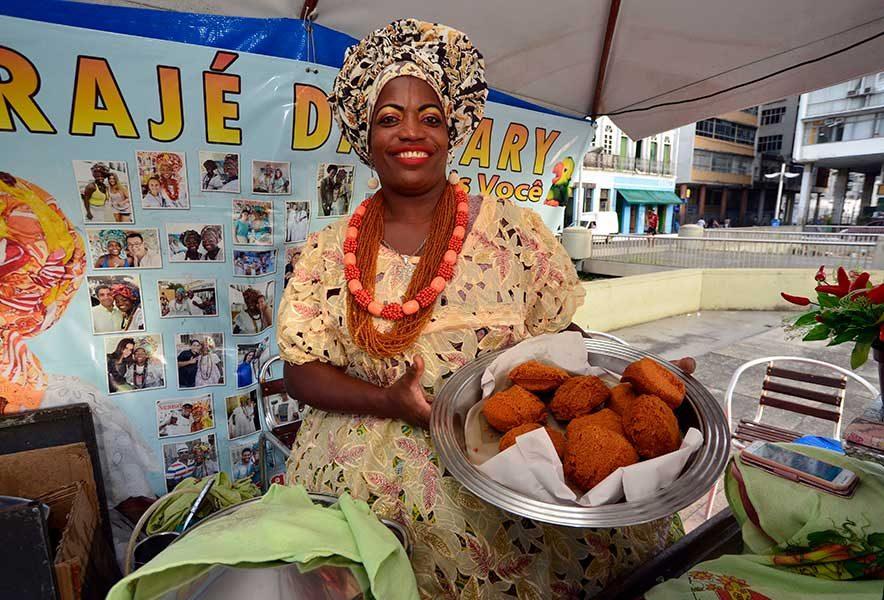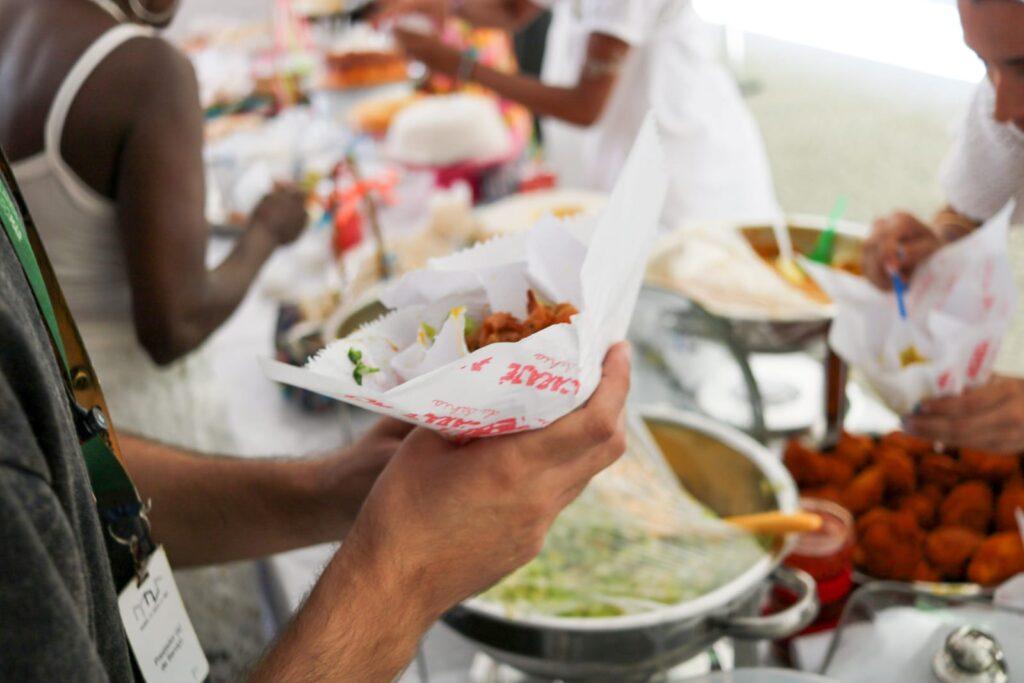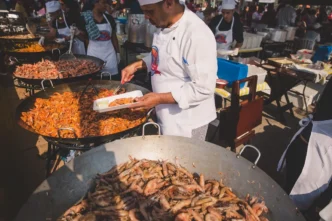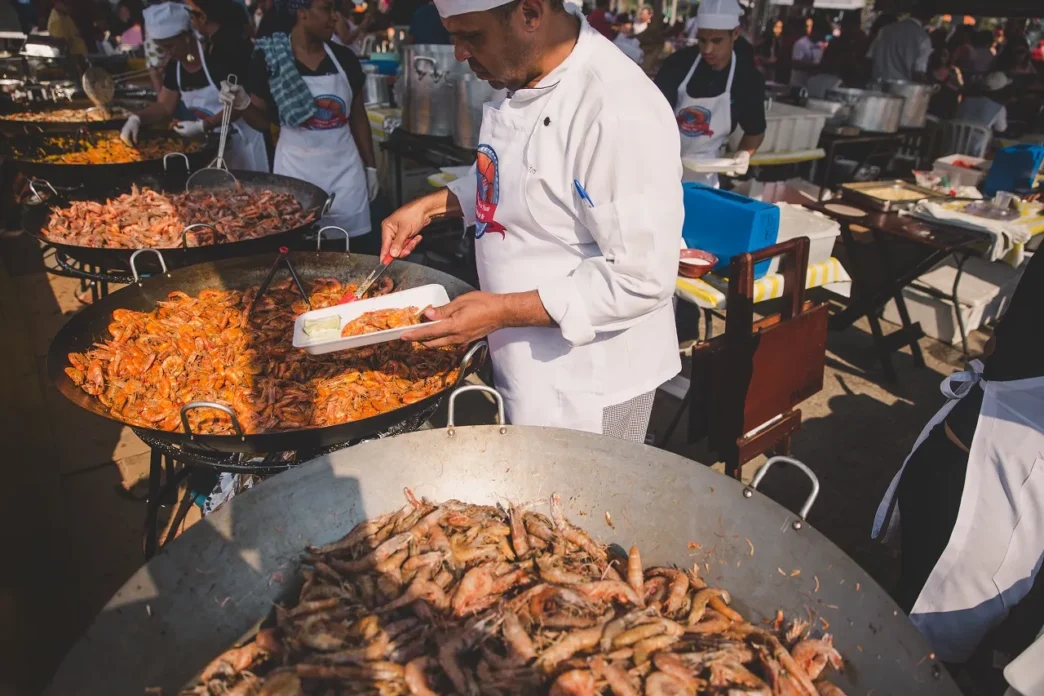[Africa News] – Acarajé Festival in Rio
At Rio de Janeiro‘s Praca Maua, the vibrant Acarajé Festival in Rio draws crowds eager to indulge in this traditional Afro-Brazilian street food.
This lively event showcases the delicious acarajé as well as honors the rich cultural heritage of the baianas, the women who have kept this culinary tradition alive.
Discovering the Origins of Acarajé
Acarajé, a delightful treat originating from Bahia, has deep roots in West African cuisine. The baianas, descendants of enslaved Africans, craft this iconic dish with love and skill. They prepare the acarajé by blending black-eyed beans into a smooth batter, shaping it with wooden and metal spoons before frying it in fragrant palm oil.
As the buns sizzle to a perfect golden brown, vendors slice them open and fill them with a medley of ingredients, with vatapá and dried shrimp reigning supreme.
Moreover, for many festival-goers, this experience marks their first encounter with the beloved acarajé, a dish that embodies the spirit of Afro-Brazilian culture.

A Cultural Celebration at the Acarajé Festival in Rio
The Acarajé Festival in Rio attracts both tourists and locals, creating a melting pot of flavors and experiences. Ita Yani, a visitor from Japan, savors her first bite and exclaims, “Tasty!” The baianas proudly showcase their cultural heritage, following the traditions of the orixas—African deities.
Maura do Acarajé, a passionate vendor, shares her connection to Iansã, the orixa associated with this beloved food.
“This is the happiest day of my life. It’s the second Acarajé festival, but now baianas have full rights,” Maura reflects, recalling the challenges they faced in the past when selling acarajé without permits.
Fortunately, new city regulations empower them to set up stalls freely, allowing them to celebrate their culinary heritage without restrictions.
Savoring the Flavors of Acarajé
At the festival, attendees enjoy a unique twist on acarajé, served in small pieces on platters. Diners, in addition, enhance their experience with okra paste and tomato salad, perfectly complementing the traditional vatapá and dried shrimp.
Moreover, Rio resident Rafael Souza and his friends relish the crispy bun, describing it as “the flavor of Brazil.” Furthermore, Carlos Suzarte, a frequent festival-goer, praises the dish’s “explosion of flavor,” highlighting the delightful mixture of tastes that make acarajé so special.
In addition, Tania Baiana, a skilled vendor, reveals some secrets behind the dish. “The batter comes from black-eyed peas blended with onions. The more you mix it, the tastier it becomes,” she explains.
Finally, the essential ingredient, dendê oil from the African palm tree, gives acarajé its signature crispiness and flavor, making it irresistible.

Preserving the Cultural Heritage of Acarajé
The making and selling of acarajé represent a vital cultural tradition that deserves protection. Leticia Ribeiro from Brazil’s Heritage Institute (Iphan) emphasizes the importance of safeguarding this intangible cultural heritage.
“Whenever an asset gets registered, the state, society, and the holders themselves must maintain its value and the craft,” she states.
As the Acarajé Festival in Rio continues to flourish, it not only celebrates a beloved dish but also honors the rich cultural heritage of the baianas. Moreover, this event serves as a powerful reminder of the resilience and vibrancy of Afro-Brazilian culture, ensuring that the traditions surrounding acarajé thrive for generations to come.
Additionally, the Acarajé Festival in Rio stands as a testament to the enduring spirit of Afro-Brazilian culture. It invites everyone to experience the flavors, stories, and traditions that make this festival a truly unforgettable celebration.
Read More:















